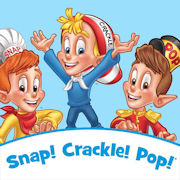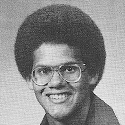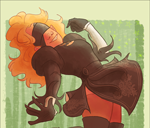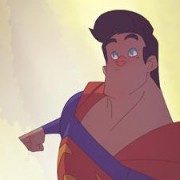|
 Hidden Figures is a 2016 American biographical drama film directed by Theodore Melfi and written by Melfi and Allison Schroeder, based on the non-fiction book of the same name by Margot Lee Shetterly about female African-American mathematicians at NASA. The film stars Taraji P. Henson as Katherine G. Johnson, a mathematician who calculated flight trajectories for Project Mercury and other missions. The film also features Octavia Spencer as Dorothy Vaughan and Janelle Monáe as Mary Jackson, with Kevin Costner, Kirsten Dunst, Jim Parsons, Glen Powell and Mahershala Ali in supporting roles. Principal photography began in March 2016 in Atlanta and was wrapped up in May 2016. Hidden Figures was released on December 25, 2016 by 20th Century Fox. It received positive reviews from critics and has grossed $87 million. It was chosen by National Board of Review as one of the top ten films of 2016 and has been nominated for numerous awards, including three Oscars, for Best Picture, Best Adapted Screenplay and Best Supporting Actress for Spencer, and two Golden Globes, Best Supporting Actress (Spencer) and Best Original Score. While reading the book and talking about it in other threads on the forums, I noticed we didn't have a thread for this movie. Full disclosure, I haven't had a chance to watch this yet because I'm the kind of moron that has to finish the book before seeing the movie (and holy poo poo is there a lot to unpack while reading the book). So if this post seems a little less effort than it deserves, please forgive me as most of my efforts are going into an OP about the book in a separate thread for TBB. Anyway, the book is absolutely amazing and by all accounts the movie is also amazing. Koalas March posted:I haven't gotten to Insecure yet. But I hear good things. You would think nobody would confuse Hidden Figures with Fences (another movie that should also already have it's own thread), but it happened at the loving Golden Globes! Koalas March posted:In case anybody missed it last night: Hidden Figures topped Rogue One but there isn't a thread about Hidden Figures already? What the gently caress? Koalas March posted:That is awesome! Also Hidden Figures beat Rogue One at the box office. That's amazing!! I'm currently looking for good quotes about it from other places on these forums where it came up in discussions, and I'll do my best to share them here after getting the original poster's permission, but it seems almost offensive that there hasn't already been a thread about this movie given how well it's been doing. Has anyone that frequents this subforum seen this movie yet? What did you think of it? In case the above still isn't quite enough to be the basis for discussion, here is an article from Smithsonian Magazine about both the book and the movie: "Maya Wei-Haas posted:As America stood on the brink of a Second World War, the push for aeronautical advancement grew ever greater, spurring an insatiable demand for mathematicians. Women were the solution. Ushered into the Langley Memorial Aeronautical Laboratory in 1935 to shoulder the burden of number crunching, they acted as human computers, freeing the engineers of hand calculations in the decades before the digital age. Sharp and successful, the female population at Langley skyrocketed. Some Pinko Commie fucked around with this message at 20:44 on Jan 27, 2017 |
|
|
|

|
| # ? Apr 27, 2024 02:09 |
|
I really dug this movie. The actors are superb (Jim Parsons only stuck out as kinda meh, but I think it's more about the role than him as an actor), and even the side characters were fleshed out more than I was expecting. Maybe it's the NASA environment at the time, but I'm glad there wasn't any strawman "I hate them niggers" characters. Most of the white people in the movie care more about the mission than the color of people's skins. Closest thing to that is Kirsten Dunst's character, and even then I got the vibe that she was playing a character cognizant of her own glass ceilings as the main character's. I really liked the success-at-a-cost aspect, especially with Octavia Spencer's arc somewhat screwing over others accidentally accidentally. Congrats, you figured out how to work the IBM machines, that's a lot of people out of a job. Hell, that's honestly the only major criticism I could muster over the film: Octavia Spencer's and Janelle Monáe's characters have to compete for their B and C plots, time-wise, to their detriment. Hell, I think Monáe's character has one plot-significant moment in the film (when the judge agrees to let her take night classes at a segregated school so she can become an engineer). I'm not sure if that's because there wasn't enough meat to put on screen, or cut for time, I dunno. Also, I dug the humor, however scarce it may be. Yup, NASA is the kind of place where the folks who bought the IBM machines didn't measure the doors to the room they need to be placed in. Both the solution to this, and Kevin Costner's solution to his black worker having to run half a mile to a colored bathroom, or drink from a different coffee pot is accomplished the same way: tearing down the thing that's in the way. Mission before signage.
|
|
|
|
MisterBibs posted:I really dug this movie. The actors are superb (Jim Parsons only stuck out as kinda meh, but I think it's more about the role than him as an actor), and even the side characters were fleshed out more than I was expecting. Maybe it's the NASA environment at the time, but I'm glad there wasn't any strawman "I hate them niggers" characters. Most of the white people in the movie care more about the mission than the color of people's skins. I like how the movie starts out with the cliché "black people get stopped by racist southern cop in the middle of nowhere" scene, and then turns it into something else entirely. This movie's gonna talk about racism, but it's not that movie. All the principal white characters think and do a lot of racist things (maybe not John Glenn?), but I don't remember any of them really being evil. The closest ones are Dunst and Parsons, and even they show some admirable qualities. I kept expecting Parsons's character to lie about Henson's numbers because that's what an Evil Racist Engineer would do—and honestly, that wouldn't surprise me to see IRL—but he admits they're correct every time. When it comes to the math, he's all about truth, even when he can get away with lying. And yet, they're chock full o'racism. That's the genius of this movie IMO. Racism isn't something that evil people use to do evil poo poo. It's just what people who have soaked up these ideas do. Often they don't even realize it's racism, and they (almost) never realize it's wrong. This movie shows how racist ideas combine with universal human behaviors and motivations to make nice people do awful things to other nice people. (Not that that's a novel conception of racism, but it is pretty rare in big-money American movies.) The movie won't let you get away with thinking all that is okay, and for me one of the joys of the movie (if you can call it that) was ruminating on what that meant in my own life. But ultimately Evil White Folks aren't the antagonists. The antagonist is the racist system itself, and the victories the main characters win are all over that system. I haven't even talked about the three main characters and their specific stories, which all deserve the long-form treatment too. (Honestly, though, I thought most of that was conventional Hollywood stuff, although it was well-done for all that.) But I really like this movie's treatment of racism, and I hope it's the start of more nuanced approaches and less "Yer not from 'round these parts, are ya?" racist-as-other nonsense.
|
|
|
|
I want to see this but it doesn't come out in Australia for another three weeks. At least it means the early year movies aren't so dry.
|
|
|
|
I knew about Katherine Johnson before the movie, thanks to living in WV, but I was apprehensive about this before seeing it. The ads made me worried it would be a trite sentimental piece. I was pleased to be proven wrong. Excellent acting from all, and the only thing that makes me sad is that Janelle Monae didn't get an acting nod - I felt she was an overlooked gem. Watching the parts with John Glenn made me tear up, as I have many friends from back home that knew him.
|
|
|
|
I was lucky enough to see this movie during it's limited release up in Hollywood, and I thought it was a really good and really poignant film. I know the term has been run into the ground somewhat, but it's probably one of the best illustration of what people of color are talking about when they bring up microaggressions, and why things like that are so pervasive. It's not that they are consciously performing them all the time, they happen because people don't think about them. Like the others have said, it works so well because it doesn't try to push racism only a single character and make them the other, instead it shows racism as a kind of "death by a thousand papercuts," which is more true to life.
|
|
|
|
I saw this in early January. I was aware of the movie for a while but pretty much the only thing I knew about it going in was some internet thinkpiece about "a movie about black women is directed by a white man!" and the memory of the last time I watched something about Mercury Project-related women based on a nonfiction book (the abysmal single-season Astronaut Wives Club show on ABC) was still in my head, so I was prepared for this to be anywhere from terrible to tolerable but forgettable. I was very glad to see it was anything but. Right up there with Apollo 13 for me, if for different reasons. I was also really surprised at how packed the theater was, especially given it was an evening showing in the middle of the week in a theater that's not usually super busy. pgroce posted:I like how the movie starts out with the cliché "black people get stopped by racist southern cop in the middle of nowhere" scene, and then turns it into something else entirely. This movie's gonna talk about racism, but it's not that movie. The Black List Podcast had a good interview with the screenwriter where she talks about her approach to subverting the "expected" race scenes (racist cop, Jim Parsons not really having a "gee, I was wrong to dislike you" moment, how all the NASA people weren't bad so much as just utterly fixated on the single goal in front of them). Other parts of the movie were inspired by her own mother and grandmother's experiences. The book and script were also written essentially alongside each other with some back and forth as they both wrote. The whole thing is definitely worth a listen: http://www.earwolf.com/episode/allison-schroeder-screenwriter-of-hidden-figures-and-luke-davies-screenwriter-of-lion/ biracial bear for uncut posted:Hidden Figures topped Rogue One but there isn't a thread about Hidden Figures already? What the gently caress? Not to diss Hidden Figures but I've seen "Hidden Figures did better than Rogue One!" on a number of websites now and it's not even close to true, by like a factor of ten. I'm kind of curious how this got started.
|
|
|
|
Chairman Capone posted:Not to diss Hidden Figures but I've seen "Hidden Figures did better than Rogue One!" on a number of websites now and it's not even close to true, by like a factor of ten. I'm kind of curious how this got started. I think it was comparing Hidden Figures on its opening weekend to Rogue One on the same weekend (about a month after release), not total sales. HF was on a lot fewer screens too, which is why so many reviews mention crowded theaters.
|
|
|
|
Chairman Capone posted:Not to diss Hidden Figures but I've seen "Hidden Figures did better than Rogue One!" on a number of websites now and it's not even close to true, by like a factor of ten. I'm kind of curious how this got started. Pretty sure it was based on this chart here: http://www.boxofficemojo.com/weekend/chart/?yr=2017&wknd=01&p=.htm
|
|
|
|

|
| # ? Apr 27, 2024 02:09 |
|
I feel kinda bad about it, but I walked out on this film about an hour into it. I certainly respect the talent and craft that went into it, but I just felt like there wasn't the confidence to let the story speak for itself. The AV Club review put it best for me, it's way too cloyingly cute and overwrought with everything it does. Like if someone does a faux pas, the entire room has to stop what they're doing and stare. Or how Kirsten Dunst isn't just the bad guy, she has to act like a total bitch doing so. Or the fact that they use a Pharrell Williams song to set a driving scene, just to let all of the moms out there know that this isn't one of those 'Boring' Oscar films. And otherwise, the film feels so rote in it's storytelling, with big monologues about How Our Work is So Much Bigger Than Us, meet cute-y romances, and antagonistic characters with no real hint of personality, outside of Kevin Costner, or purpose other than 'Make life difficult for designated protagonist'. I admit, I'm probably wrong and they do develop in the latter half, but for the first half it's just frustratingly flat characterization. It's kinda disappointing, as you can tell there's a good story. But it wants to throw so much in there that ends up dragging the film down. The most engaged I was is in the scenes of actual NASA procedure and conflict developing from that, but I didn't need a probably unnecessary romance, or the suggestion of a fracturing home, or comments on extraneous civil rights developments. Or at least, they weren't presented in a way that felt natural to the core storyline, or in a way that was naturally fascinating. After a year that had Moonlight, Fences, and Loving tackling the plight of race and segregation in the USA, and the way they affect family, romance and careers, this film felt so toothless. Again, it's a film that isn't confident in it's story to grab the average audience. The fear is that the moment they stray a hair away from convention, they're going to loose all of the mommies who are out with their book club 'trying something new', then they've failed as a film. Again, I have all of the respect for the talented cast, especially the leading three and Kevin Costner, and a lot of the crew that did put in good work. And it's an admirable story, featuring unconventional story matter. But the lack of confidence is something that felt very top down, coming from the director or a producer who didn't have the faith that a film lead by black women would play. And it is these decisions that hamstrung what could've made an excellent film into something that is completely disposable, and to be forgotten in time outside of wikipedia footnotes, maybe an Oscar (but only if they unjustly steal it away from Viola Davis).
|
|
|



















